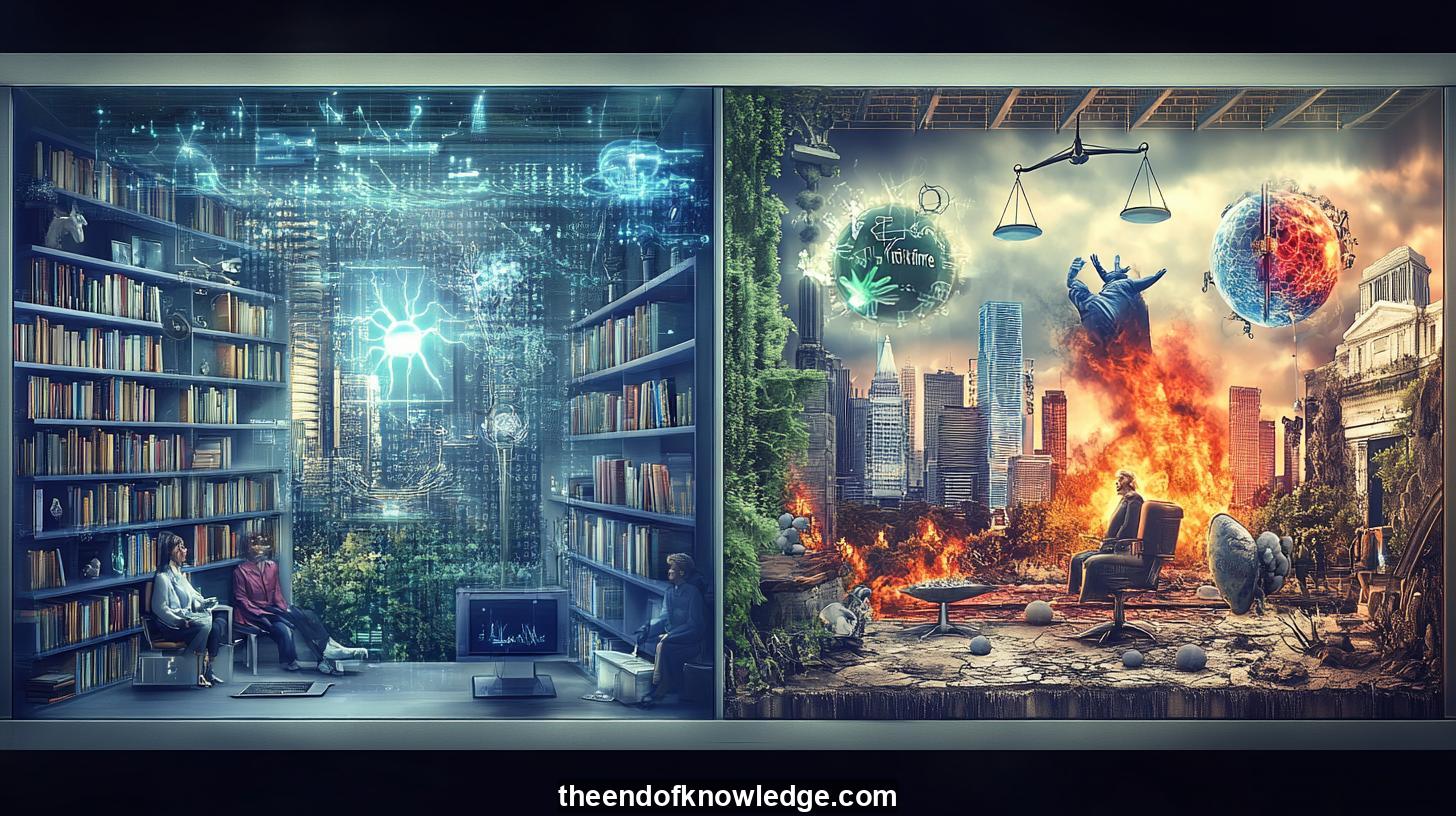 >
>
Concept Graph, Resume & KeyIdeas using DeepSeek R1 :
Resume:
The discussion revolves around the impact of GPT-4 and other AI technologies on society, focusing on their potential to transform industries, education, and human interaction. It highlights the ethical considerations, such as privacy and bias, and the need for regulation to ensure responsible use. The conversation also explores the philosophical implications of AI, questioning whether these technologies truly understand or merely mimic human-like reasoning. Additionally, it addresses the future of work, emphasizing the need for continuous learning and adaptation as AI reshapes job markets and professional skills. The importance of critical thinking and ethical awareness in navigating this technological evolution is underscored throughout.30 Key Ideas:
1.- GPT-4 and similar AI models are reshaping industries, from education to cybersecurity, by automating tasks and enhancing efficiency.
2.- The ethical use of AI raises concerns about privacy, bias, and accountability in decision-making processes.
3.- AI tools like GPT-4 are being used in education to generate content, but their use must be transparent to avoid academic dishonesty.
4.- The future of work will require continuous learning as AI assumes roles in writing, programming, and data analysis.
5.- Cybersecurity is a growing concern, with AI being used both to defend against and perpetrate attacks.
6.- AI systems lack true human reasoning but can mimic conversational patterns, leading to debates about their limitations.
7.- The anthropomorphization of AI, where humans attribute human-like qualities to machines, reflects psychological and cultural tendencies.
8.- AI technologies are increasingly integrated into judicial systems, raising questions about their role in legal decision-making.
9.- The global impact of AI is uneven, with some countries adopting it rapidly while others lag due to regulatory or cultural barriers.
10.- AI could revolutionize healthcare by improving diagnostics and personalized treatment plans.
11.- The ethical implications of AI in warfare and surveillance are significant and require international regulation.
12.- AI systems are being used to generate synthetic content, challenging traditional notions of authorship and creativity.
13.- The development of AI reflects human creativity and ingenuity but also raises existential risks if misused.
14.- AI models like GPT-4 demonstrate emergent properties, surprising developers with unexpected capabilities.
15.- The intersection of AI and neuroscience is exploring how machines can mimic human cognition and brain activity.
16.- AI tools are transforming the financial sector by automating reporting and enhancing risk analysis.
17.- The environmental impact of training large AI models is a growing concern due to their energy consumption.
18.- AI is enabling new forms of artistic expression, challenging traditional definitions of creativity.
19.- The use of AI in mental health applications is promising but requires careful consideration of ethical boundaries.
20.- AI systems are being used to monitor and address climate change by analyzing vast datasets.
21.- The legal framework for AI is still evolving, with questions about liability and accountability remaining unresolved.
22.- AI is reshaping the retail industry by personalizing shopping experiences and optimizing supply chains.
23.- The potential for AI to exacerbate social inequalities must be addressed through inclusive policies.
24.- AI tools are transforming the field of translation, enabling real-time communication across languages.
25.- The integration of AI into transportation systems is improving safety and efficiency in logistics.
26.- AI is being used to combat misinformation by identifying and flagging false content.
27.- The psychological impact of interacting with AI systems is a growing area of research.
28.- AI is enabling new forms of scientific discovery by analyzing complex datasets and identifying patterns.
29.- The future of AI development requires collaboration between governments, corporations, and academia.
30.- The responsible development of AI hinges on balancing innovation with ethical considerations and societal needs.
Interviews by Plácido Doménech Espí & Guests - Knowledge Vault built byDavid Vivancos 2025